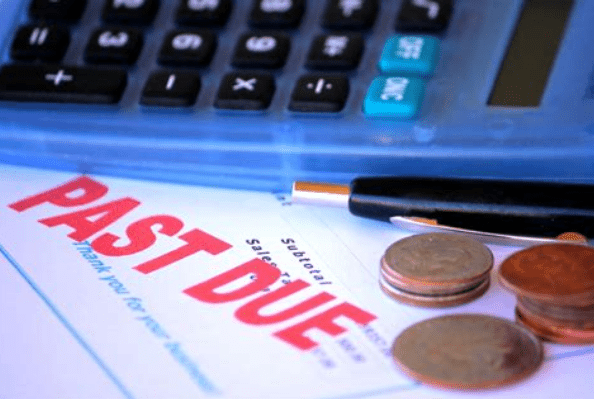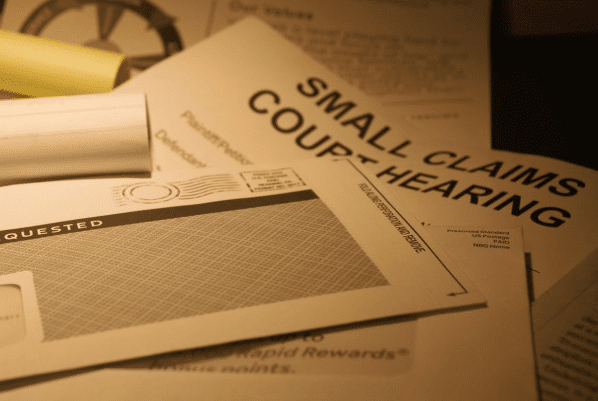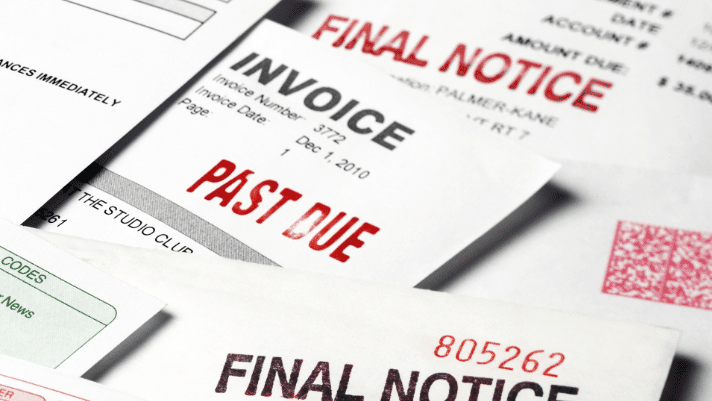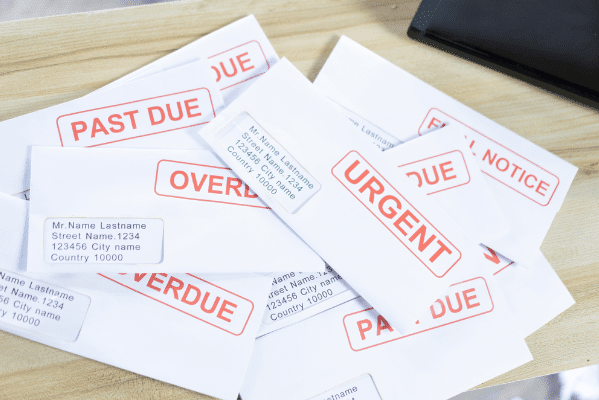Got served with a debt lawsuit in Massachusetts? Don’t sweat it—you’ve got 20 days to respond and avoid a default judgment. Here’s what you need to do: Answer each issue from the Complaint, assert your affirmative defenses, and file the Answer document with the court. Sounds overwhelming? Don’t worry, ZumaZip can help you breeze through each step and more.
If you’ve ever felt that sinking feeling when your phone rings, only to find out it’s a debt collector on the line, you’re not alone. Dealing with these calls can be incredibly stressful, and facing a lawsuit for a debt can feel even more daunting.
We get it—when you’re already struggling to make ends meet, the idea of hiring a lawyer might seem out of reach. After all, if you had extra money lying around, you probably would have used it to pay off your debt in the first place, right?
But here’s the good news: you don’t have to navigate this challenging situation by yourself. In Massachusetts, there are laws designed to protect you in these exact circumstances. In this article, we’ll walk you through the process of responding to a debt lawsuit and handling a Summons for debt collection in Massachusetts. We’ll cover everything from important deadlines and required forms to specific state laws and more.
So take a deep breath, relax, and let’s tackle this together.
Table of Contents
- Deadlines
- Forms
- Steps to Respond
- Statute of Limitations in Massachusetts
- Settle your Debt
- What is ZumaZip?
- Massachusetts Legal Aid Organizations
- Key Takeaways
- Guides for Other States
Respond to your Massachusetts debt collections lawsuit before the deadline
Facing a debt collection lawsuit in Massachusetts can feel overwhelming, but with the right knowledge and actions, you can turn the tables in your favor. Here’s the scoop:
When a creditor serves you with a Summons and Complaint, it’s their way of saying, “Pay up.” But you’ve got options. You have a crucial 20-day window to respond, and trust me, you don’t want to miss it. If you do, the creditor could snag a default judgment against you—definitely not ideal.
Here’s the game plan: File an Answer within those 20 days. It’s like throwing a curveball in the creditor’s plan. They’re banking on an easy win, but by making them go through the court process, you’re already giving them a run for their money.
So, mark your calendar, set that phone reminder, and make sure you file that Answer on time. Don’t let the creditors win just because they’re hoping you’ll stay silent. Remember, the clock starts ticking the moment you’re served, even on weekends and holidays. And guess what? The creditor doesn’t want to shell out for an attorney any more than you do.
It’s time to stand up for yourself and fight back. Show them you’re not backing down without a fight!
Use Massachusetts Answer forms to respond to your case
Responding to a lawsuit in Massachusetts? You’ve got choices! Whether you’re facing a case in District or Superior Court or even in Small Claims Court (for matters under $7,000), it’s crucial to tell your side of the story.
But here’s the good news: you don’t have to navigate this process alone. ZumaZip’s Answer form is your go-to solution. It’s super simple—all you have to do is answer a few questions about your case online, and ZumaZip’s software takes care of the rest. This form is expertly crafted with the right legal language and format to help you present a strong defense.
If you prefer to use official court forms, Massachusetts courts have an Answer to a Summons form readily available. You can find it on their website along with other helpful forms for debt relief. Simply fill it out online or in a word/pdf document, and follow the provided instructions to ensure you’re on the right track.
Whether you’re a DIY enthusiast or prefer professional assistance, the key is not to ignore that lawsuit. Take action, respond, and let your voice be heard!
Facing a debt lawsuit in Massachusetts can be daunting, but fear not—we’ve got a roadmap to guide you through the process. Here are three steps to respond effectively:
- Address the Complaint: The creditor’s Summons and Complaint lay out their case against you. Within 20 days, it’s crucial to respond. Start by addressing each point raised in the Complaint.
- Assert Defenses and Counterclaims: This is your chance to present your side of the story. Assert any affirmative defenses or counterclaims you may have. These could include things like improper service of the lawsuit or the expiration of the statute of limitations.
- File Your Answer: Once you’ve prepared your response, it’s time to file it with the court and serve a copy on the plaintiff. This officially puts your response on record and ensures that your side of the story is heard.
Feeling overwhelmed? Don’t worry—tools like ZumaZip are here to help. With our software, you can draft and file your Answer in minutes, saving you time and hassle. So take a deep breath, you’ve got this!
1. Answer each issue of the Complaint
Responding to a Complaint isn’t as hard as it might seem.
The Complaint will lay out each issue in a numbered paragraph. You can respond with “agree,” “disagree,” or “I don’t know.” Don’t forget to match each response with the corresponding paragraph number.
Many lawyers suggest using a general denial because it shifts the burden of proof to the filing party. If the information is accurate, choose “agree.” For example, you could admit to your identity and the fact that you owe the debt. Remember, you don’t need to deny every claim to win. Next, deny any false assertions, such as the debt amount or whether you owe it at all.
Just make sure to respond within 20 days under Massachusetts law, or you’ll risk losing by default. Nobody wants that – except maybe your opponent.
2. Assert affirmative defenses and counterclaims
Are you ready to turn the tables and defend yourself against the party suing you? Good news: you have the chance to do just that with affirmative defenses!
With ZumaZip, you’ll be able to choose the right defense for you and list it in your Answer. Let’s go over some typical defenses you can use to fight back:
- You don’t owe the debt. It’s possible that the debt is not yours or that someone stole your identity.
- You’ve already paid off the debt. Maybe you’ve already settled the account, or perhaps there was a prior agreement to pay less than the total amount.
- You disagree with the amount of the debt. The amount they’re claiming may include excessive late fees or other charges.
- The debt has been discharged in bankruptcy. If your debt was included in a bankruptcy that received a discharge, you are no longer obligated to pay it.
- The plaintiff hasn’t proven they hold the debt. It’s not uncommon for debts to be sold to third-party collection agencies that don’t have the proper documentation.
- The statute of limitations has expired. Massachusetts law sets the deadline at 6 years to sue for a debt based on a contract from six years ago.
- These are just a few examples of affirmative defenses. Remember, you can attach any supporting documentation as evidence for your claims. It’s important to note that inability to pay the debt is not a legal defense.
But wait, there’s more! You can also assert counterclaims if you believe the party suing you has violated Massachusetts debt collection laws. Just check the box next to any that apply, fill out your explanation, and attach any supporting documents. Keep in mind that you’ll need to prove your counterclaims at trial, so choose wisely. Don’t forget to fill out a Statement of Damages District Court Massachusetts form, stating how much money you believe is appropriate for your damages if you can prove your counterclaim(s).
Remember, you only have 20 days to respond to the Summons and Complaint, so don’t delay in using ZumaZip to craft your response.
3. File the Answer with the court and serve the plaintiff
Filing your Answer with the court and serving the plaintiff is the final step in responding to a debt collection lawsuit, but it’s just as important as every other step you’ve taken so far. Luckily, ZumaZip can handle this step for you, so you can focus on more important things, like catching up on your favorite Netflix series.
It’s crucial to file and serve your Answer on time, even if you’ve crafted the best response to the lawsuit ever written. Massachusetts law requires that you file and serve your Answer within twenty days of being served with the Complaint. Don’t let procrastination ruin your defense strategy!
To file and serve your Answer, you’ll need to complete a few easy steps:
- Fill out the “Certificate of Service” section of your Answer, located below your signature. This section requires you to indicate the date and method of service (mail or in-person) to prove that you filed and served your Answer before the deadline.
- Print at least two copies of your Answer, but make it three so you can keep one for yourself. If you don’t have access to a printer, try your local public library or office supply store. ZumaZip can also print and mail it for you, so you don’t have to leave the house!
- Mail one copy of your Answer to the court at the address listed on the Summons and Complaint.
- Mail a second copy to the plaintiff’s attorney, also listed on the Summons and Complaint.
- Finally, gather all the supporting documents for your Answer and bring them to your court hearing.
Now that you’ve filed and served your Answer, all that’s left to do is wait for the court to set your hearing date. In the meantime, reward yourself for a job well done by ordering takeout from your favorite local restaurant or treating yourself to a new pair of comfy pajamas.
Let’s consider an example of how to resolve a debt lawsuit in Massachusetts.
Here’s a scenario: Meet Charles. Life got a bit hectic, and he fell behind on his credit card bills. Eventually, his creditor charges off the account and sells it to LVNV Funding. They decide to sue Charles for $5,000.
When Charles receives the Summons and Complaint, he knows he needs to act fast. He turns to ZumaZip to respond with an Answer before the 20-day deadline hits. This buys him some time to figure out his next steps.
With a clearer picture of his situation, Charles decides to try and settle the debt. He uses ZumaZip Settle to send a settlement offer to LVNV Funding. Starting at $2,500 for the $5,000 debt, he waits for their response.
LVNV considers Charles’s offer and comes back with a counteroffer of $4,500. Not bad, but Charles knows he can do better. He engages in a few rounds of negotiations, and eventually, they agree on a settlement of $3,000.
With the terms settled, Charles and LVNV prepare and sign a settlement agreement. ZumaZip Settle handles the transfer of funds securely, keeping Charles’s financial information private.
As a result, LVNV drops the case against Charles, and he’s finally off the hook. He saves thousands, avoids a trip to court, and gives himself a much-needed financial reset. Thanks to ZumaZip, Charles can breathe a sigh of relief and move forward with confidence.
Check the Massachusetts statute of limitations on debt
In Massachusetts, the statute of limitations for debt collection is six years, as provided by Mass. Gen. Laws ch. 260, §2. This means that creditors and debt collectors only have six years from the date of last payment or activity on an account to sue debtors for outstanding debt in Massachusetts. It also means that the Massachusetts statute of limitations on credit card debt is just six years too.
The table below further illustrates the statute of limitations on different types of debt in Massachusetts:
| Debt Type | Deadline |
|---|---|
| Credit Card | 6 years |
| Medical | 6 years |
| Student Loan | 6 years |
| Auto Loan | 6 years |
| Personal Loan | 6 years |
| Mortgage | 6 years |
| Contract Under Seal | 20 years |
| Promissory Note | 20 years |
| Judgment | 20 years |
| Source: Mass. Gen. Laws ch. 260 § 1, 2, |
So, if you’re feeling a bit nostalgic for the days when you had less debt, make sure to keep track of the last time you made a payment or had any account activity. And if a debt collector comes knocking after six years have passed, don’t be afraid to use the statute of limitations defense to keep them at bay!
Be careful not to make any payments on a debt until you know it is within the statute of limitations in your state. Doing so will reset the clock, and you might find yourself in court when you could have otherwise avoided it.
Settle your debt before going to court
Maybe you know that you owe the debt. If this is the case, you might be wondering if debt settlement is a good option for you.
If you’ve been sued for debt, you can reach out to your creditors or debt collectors at any stage of the lawsuit to discuss debt settlement. Debt settlement is the process by which a consumer, like you, settles an outstanding debt for an amount that is less than the full amount owed.
ZumaZip Settle, powered by ZumaZip, makes the debt settlement process simple.
As a tech-based approach to debt settlement, ZumaZip Settle’s software can help you send and receive settlement offers until an agreement is reached. Then, it helps manage your documentation of the settlement and transfers your payment to the creditor or debt collector, keeping your financial information private and secure.
Why ZumaZip?
ZumaZip is your go-to solution for taking on debt collectors with ease. Whether you need to respond to a debt lawsuit, send correspondence to collectors, or negotiate a settlement, ZumaZip has you covered.
Our Answer service, available through a user-friendly web app, guides you through the process step by step. We’ll ask you all the necessary questions to complete your Answer comprehensively. Once you’re done, our team of attorneys will review your document to ensure accuracy, and then file it on your behalf. With ZumaZip, fighting back against debt collectors has never been simpler.
Massachusetts legal aid organizations can help
In the United States, there are numerous government-funded organizations that offer free legal services to individuals who cannot afford to hire a lawyer. These organizations can provide assistance with debt collection cases or connect you with a local lawyer who can help. Some of the resources available in Massachusetts include:
- MassLegalHelp.org
- Massachusetts Law Reform Institute
- Massachusetts Legal Assistance Corporation.
- MassLegalServices
- Massachusetts Court System referral resources
- Greater Boston Legal Services
- Community Legal Aid
- Boston Bankruptcy Legal Aid and Pro Bono Services
So, if you’re feeling overwhelmed by debt and can’t afford a lawyer, don’t panic! Help is available, and these organizations are here to support you.
Key Takeaways
So, in short, here’s the review on how to respond to a Summons for debt collection in Massachusetts.
Make certain you know the deadline and complete the process before it expires. Massachusetts’ debt collection regulations allow 20 days to file your response. ZumaZip’s Answer form makes responding before the deadline simple.
Make certain you are using the proper Massachusetts Answer form, or ZumaZip.com, to draft your response. When you fill out the form complete the following three steps:
- Answer each issue in the Complaint.
- Assert any and all of your affirmative defenses.
- File and serve the Answer with the Court and the plaintiff’s attorney.
If you know you owe the debt, and you have enough money to settle a portion of it right away, use ZumaZip Settle to send and receive settlement offers until you reach an agreement with your creditor.
What is ZumaZip?
ZumaZip is a convenient solution designed to streamline your response to a debt collection lawsuit. Here’s a breakdown of what you can expect when you use ZumaZip:
Firstly, you’ll access our user-friendly web application, which guides you through the process step by step. You’ll be prompted to answer a series of questions related to your specific situation. Once you’ve completed the questionnaire, you have the option to either print out the finalized forms and mail them to the appropriate courts yourself, or you can opt to utilize ZumaZip’s services to file them on your behalf. Additionally, if you choose this option, an attorney will review your document for added peace of mind.
If you’re seeking guidance on how to effectively respond to a debt collection lawsuit, ZumaZip can provide the assistance you need. Feel free to explore our FAQs for more information on what ZumaZip has to offer.
What if I haven’t been sued yet?
If you’ve only received a collections notice, but not a lawsuit, the best way to respond is with a Debt Validation Letter. When a debt collector contacts you in any way, whether it’s by phone or mail, you can respond by formally requesting a debt validation with a Debt Validation Letter . This letter notifies the collector that you dispute the debt and forces them to provide proof you owe the debt. They can’t call you or continue collecting until they provide validation of the debt. This flowchart shows how you can use a Debt Validation Letter to win.
Get started with a Debt Validation Letter here.
How to Answer a Summons for debt collection in all 50 states
Here’s a list of guides on how to respond to a debt collection lawsuit in each state:
- Alabama
- Alaska
- Arizona
- Arkansas
- California
- Colorado
- Connecticut
- Delaware
- Florida
- Georgia
- Hawaii
- Idaho
- Illinois
- Indiana
- Iowa
- Kansas
- Kentucky
- Louisiana
- Maine
- Maryland
- Massachusetts
- Michigan
- Minnesota
- Mississippi
- Missouri
- Montana
- Nebraska
- Nevada
- New Hampshire
- New Jersey
- New Mexico
- New York
- North Carolina
- North Dakota
- Ohio
- Oklahoma
- Oregon
- Pennsylvania
- Rhode Island
- South Carolina
- South Dakota
- Tennessee
- Texas
- Utah
- Vermont; Vermont (Small Claims court)
- Virginia
- Washington
- West Virginia
- Wisconsin
- Wyoming
Guides on how to beat every debt collector
Hey there! Facing off against a debt collector can feel like a daunting challenge, but fear not! We’re here to help you navigate through it all with our handy guides designed to assist you in beating every debt collector you encounter. Whether you’re facing a new lawsuit or dealing with a persistent collector, we’ve got your back. Stay positive, stay informed, and let’s tackle this together!
- Absolute Resolutions Investments LLC
- Accredited Collection Services
- Alliance One
- Amcol Clmbia
- American Recovery Service
- Asset Acceptance LLC
- Asset Recovery Solutions
- Associated Credit Services
- Autovest LLC
- Cach LLC
- Cavalry SPV I LLC
- Cerastes LLC
- Colinfobur
- Covington Credit
- Crown Asset Management
- CTC Debt Collector
- Cypress Financial Recoveries
- Delanor Kemper & Associates
- Eagle Loan of Ohio
- Educap
- Estate Information Services
- FIA Card Services
- Forster & Garbus
- Freshview Solutions
- Fulton Friedman & Gullace LLP
- Harvest Credit Management
- Howard Lee Schiff
- Hudson & Keyse LLC
- Integras Capital Recovery LLC
- Javitch Block
- Jefferson Capital Systems LLC
- LVNV Funding
- Mannbracken
- Mariner Finance
- Medicredit
- Michael J Adams PC
- Michael J Scott
- Midland Funding LLC
- Mullooly, Jeffrey, Rooney & Flynn
- Mountain Land Collections
- MRS Associates
- National Collegiate Trust
- Nationstar Foreclosure
- Northstar Capital Acquisition
- NCEP LLC
- NRC Collection Agency
- OneMain Financial
- Palisades Collection LLC
- Pallida LLC
- Paragon Revenue Group
- Pinnacle Collections Agency
- PMAB LLC
- Portfolio Recovery Associates
- Provest Law
- PYOD LLC
- Reunion Student Loan Finance Corporation
- Revenue Group
- Regents and Associates
- RSIEH
- Salander Enterprises LLC
- Second Round Sub LLC
- Security Credit Services
- Sherman Financial Group
- Suttell and Hammer
- T-Mobile
- Transworld Systems
- Tulsa Teachers Credit Union
- UCB Collection
- Velo Law Office
- Velocity Investments
- Waypoint Resource Group
- Weinberg and Associates
- Wolpoff & Abramson
Settle your medical debt
Having a health challenge is stressful, but dealing medical debt on top of it is overwhelming. Here are some resources on how to manage medical debt.
- Am I Responsible for My Spouse’s Medical Debt?
- Do I Need a Lawyer for Medical Bills?
- Do I Need a Lawyer to Fight Medical Bill Debt?
- Does Bankruptcy Clear Medical Debt?
- How Much Do Collection Agencies Pay for Medical Debt?
- How to Find Medical Debt Forgiveness Programs
- Is There a Statute of Limitations on Medical Bills?
- Medical Debt Statute of Limitations by State
- Summoned to Court for Medical Bills — What Do I Do?
- Summoned to Court for Medical Bills? What to Do Next
Stop calls from Debt Collectors
Do you keep getting calls from an unknown number, only to realize that it’s a debt collector on the other line? If you’ve been called by any of the following numbers, chances are you have collectors coming after you, and we’ll tell you how to stop them.



































